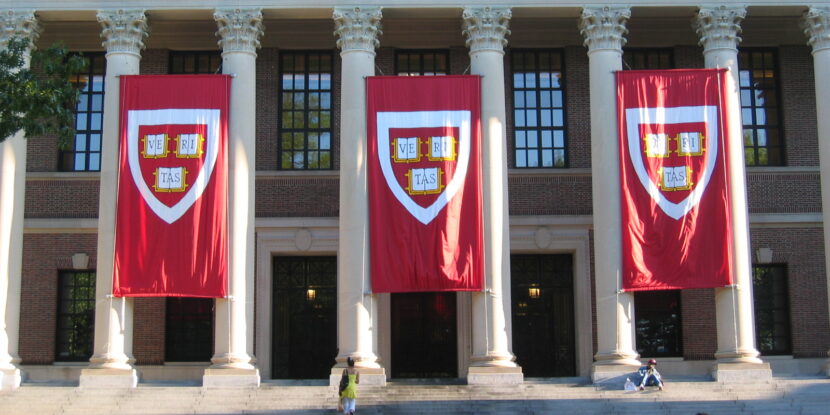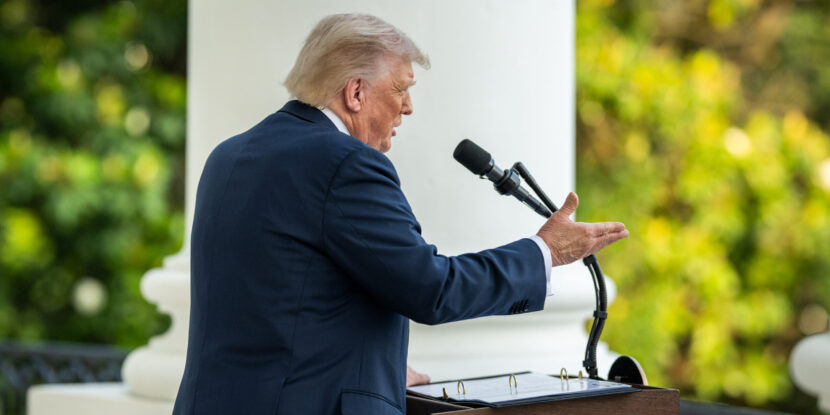
PULSE POINTS:
❓What Happened: The Harvard Law Review is under federal investigation for racial discrimination and alleged retaliation against a student editor.
👥 Who’s Involved: Harvard Law Review, a student editor, the Department of Justice (DOJ), attorney Jason Torchinsky.
Your free, daily feed from The National Pulse.
📍 Where & When: Harvard University, ongoing as of 2025.
💬 Key Quote: “If you know someone is a witness in a federal investigation, and you try to intimidate them into stopping cooperation with the government, that in itself is its own offense,” said Jason Torchinsky.
⚠️ Impact: Potentially deepening legal troubles for the Harvard Law Review.
IN FULL:
The Harvard Law Review is facing multiple federal investigations over allegations of racial discrimination and actions that could amount to witness intimidation. Despite being under a federal document retention order as part of a Department of Justice (DOJ) investigation, the law journal allegedly retaliated against a student editor who leaked files to the Washington Free Beaconand demanded that the documents be destroyed.
Notably, the Harvard Law Review faces numerous allegations of discriminatory behavior in its selection of editors and other staff. Internal memos and messages show that the law journal emphasized race and other diversity, equity, and inclusion (DEI) factors in the selection process, leading to discriminatory practices against white applicants. Consequently, the Department of Justice (DOJ) and the Department of Health and Human Services (HHS) launched formal investigations into the publication.
After receiving notice of the investigations, the Harvard Law Review was ordered to retain all documents and other relevant materials. Additionally, the publication was told that student editor Daniel Wasserman was cooperating with the government investigation. However, a week later, Wasserman was ordered by the journal to return or destroy any materials he had shared with media outlets. Notably, Wasserman was the source of leaked files published by the Washington Free Beacon.
Additionally, the journal issued a formal reprimand in Wasserman’s law review file, which likely constitutes illegal retaliation as the student editor was named by the federal government as a cooperating witness. Jason Torchinsky, a former Justice Department official, described such behavior as likely illegal, stating, “If you know someone is a witness in a federal investigation, and you try to intimidate them into stopping cooperation with the government, that in itself is its own offense.”
While technically separate from Harvard University, the Harvard Law Review has a long-standing presence on campus and is considered a significant stepping stone for students with high ambitions in the legal field. A number of U.S. Supreme Court Justices once served as editors during their time at Harvard Law School.

PULSE POINTS:
❓What Happened: President Donald J. Trump warned of “very, very tough” sanctions on Russia and potentially Ukraine if peace talks fail or are obstructed.
👥 Who’s Involved: President Trump, German Chancellor Friedrich Merz, Russian President Vladimir Putin, Ukrainian President Volodymyr Zelensky.
Your free, daily feed from The National Pulse.
📍 Where & When: Oval Office meeting, Washington D.C., Thursday morning.
💬 Key Quote: “When I see the moment when we’re not going to make a deal… we’ll be very, very tough. And it could be on both countries, to be honest, you know? It takes two to tango,” Trump said.
⚠️ Impact: Potential for expanded U.S. sanctions targeting Russian energy customers, including major nations like China, if peace efforts are derailed, and possibly sanctions on Ukraine, too.
IN FULL:
President Donald J. Trump has issued a stark warning to Russia and Ukraine over their ongoing conflict, saying “very, very tough” sanctions could be imposed on either nation if peace negotiations fail or are intentionally obstructed. The comments came during a meeting with German Chancellor Friedrich Merz in the Oval Office on Thursday morning.
Trump emphasized his commitment to facilitating peace, but cautioned that both sides could face consequences if talks collapse. “When I see the moment when we’re not going to make a deal, when this thing won’t stop, at that moment… we’ll be very, very tough. And it could be on both countries, to be honest, you know? It takes two to tango,” he said.
While stating his support for Ukraine, Trump also warned Kiev against taking an obstructive stance. He noted, “I’m with Ukraine, we just signed a big deal on rare earth with Ukraine. I’m for stopping killing, really.”
The President highlighted the deep animosity between Russian President Vladimir Putin and Ukrainian President Volodymyr Zelensky, likening the situation to a referee intervening in a heated fight. “There’s a great hatred between those two men,” Trump remarked.
Since Russia’s 2022 invasion of Ukraine, Western nations have imposed extensive sanctions on Moscow. However, these measures have had limited success in crippling the Russian economy, which has benefitted from sustained energy exports.
Trump proposed a new approach to sanctions, suggesting penalties on nations purchasing Russian energy, a strategy he referred to as “secondary sanctions.” Such measures could target major Russian energy customers, including China, in an effort to pressure Moscow into negotiating in good faith.
“If [a peace deal] doesn’t happen and if I see someone’s out of line, if Russia’s out of line, you’ll be amazed how tough [I will be],” Trump added, underscoring his readiness to act decisively if talks falter.
President Trump also expressed a willingness to sanction either country if they refuse to sign a 30-day ceasefire or violate any ceasefire agreement last month. Russia has previously accused Ukraine of violating ceasefire agreements, including one directed at halting attacks on infrastructure earlier this year, and vice versa.
show less

 3 weeks ago
1
3 weeks ago
1








 English (US) ·
English (US) ·